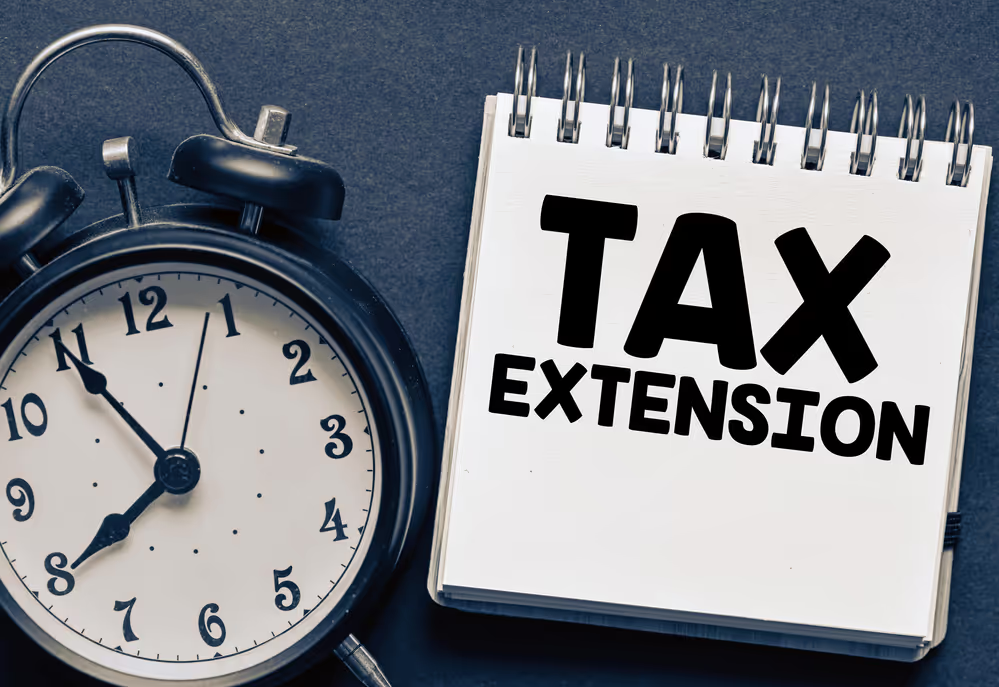Pros and Cons of Filing a Tax Extension for Your Business
With this year’s tax season well underway, businesses are faced with the daunting task of preparing and filing their tax returns. For many business owners, the thought of meeting the looming deadline can be stressful, especially when faced with complex tax laws and regulations. In such circumstances, filing a tax extension can seem like an attractive option. However, like any financial decision, there are pros and cons to consider before opting for this route. Keep reading to learn more about both the benefits and the drawbacks of this decision, so you can choose the route that’s right for your business.
Pros of Requesting an Extension
When you’re in a pinch and just not ready to file, request a tax extension for your business can offer many benefits:
- Extra Time for Accuracy: One of the primary advantages of filing a tax extension is the additional time it provides for ensuring accuracy in your tax return. Rushing through the tax preparation process can increase the likelihood of errors, which may lead to penalties or audits. By extending the deadline, you give yourself and your tax preparer the opportunity to thoroughly review your financial records and identify any potential mistakes.
- Avoid Late Filing Penalties: Failing to file your tax return by the deadline can result in substantial penalties imposed by the IRS. These penalties are often based on the amount of tax owed and can quickly add up. By filing for an extension, you can avoid these penalties, provided you submit the necessary paperwork and payment of estimated taxes by the original deadline.
- Time to Organize Financial Documents: Small business owners, in particular, may find it challenging to gather all the necessary financial documents and receipts needed for accurate tax reporting. Filing for an extension gives you the extra time needed to organize your financial records and ensure that you have all the necessary documentation to support your tax deductions and credits.
- Smooth Cash Flow Management: Another benefit of filing a tax extension is the flexibility it provides in managing your cash flow. By delaying the payment of taxes until the extended deadline, you can free up funds to address other pressing financial obligations or invest back into your business. This can be especially beneficial for businesses experiencing temporary cash flow constraints.
Cons of Requesting and Extension
As attractive as all those benefits sound, it’s important to weight the drawbacks of extending as well:
- Accrual of Interest and Penalties: While filing a tax extension grants you additional time to file your tax return, it does not extend the deadline for payment of taxes owed. Any taxes owed must still be paid by the original deadline to avoid accruing interest and penalties. Failing to make timely payments can result in hefty fines, negating any potential benefits of the extension.
- Potential for Increased Scrutiny: While tax extensions are a legitimate means of obtaining additional time to file your return, some businesses may be wary of the perception it creates with tax authorities. While there is no evidence to suggest that filing for an extension increases the likelihood of an audit, businesses should be mindful of potential scrutiny and ensure that all tax obligations are met promptly.
- Delayed Access to Refunds: If you anticipate receiving a tax refund, filing for an extension means delaying the receipt of your refund. While this may not be a significant concern for businesses with minimal tax liabilities, those relying on refunds to address financial needs may prefer to file their returns by the original deadline to expedite the refund process.
- Uncertainty and Procrastination: Filing for a tax extension can inadvertently foster a sense of complacency and procrastination, leading to further delays in tax preparation. Some businesses may find it challenging to meet the extended deadline, resulting in unnecessary stress and potential penalties if the deadline is missed.
The decision to file a tax extension for your business should be carefully weighed, taking into account the specific circumstances and financial considerations of your business. While it can provide valuable additional time for accuracy and organization, it is essential to understand the implications of delaying tax filing and payment obligations. Ultimately, when you’re down to the wire and know you won’t be able to file your full return by March 15th, the option of extending for six months can give you some much-needed room to breathe.
As experienced CPAs at Demian & Company, we understand the complexities of business tax planning and compliance. We encourage you to reach out to our team for expert guidance and assistance in navigating your business's tax obligations, whether it involves timely filing or seeking an extension. Don't hesitate to contact us today to ensure your business's financial health and compliance with tax laws.
%20(1).avif)
Peter Demian is a highly-rated CPA specializing in accounting and tax services for individuals and businesses across 49 states. He offers expertise in tax strategies and assistance with IRS settlements.


.svg)





